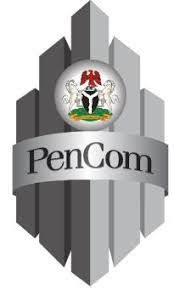By Sola Alabadan
The National Pension Commission (PenCom) has barred all Licensed Pension Fund Operators (LPFOs), comprising Pension Fund Administrators (PFAs) and Pension Fund Custodians (PFCs) from transacting with service providers and vendors that do not remit pensions for their employees as evidenced by a Pension Clearance Certificate issued by the commission.
The pension operators have been given a grace period of six months to comply with this new directive aimed at expanding coverage of the Contributory Pension Scheme (CPS) in Nigeria,
Section 2 of the Pension Reform Act 2014 mandates all employers in the public and private sectors, including Federal, State, and Local Governments, to participate in the Contributory Pension Scheme and remit pension contributions no later than seven working days after salary payments.
However, PenCom lamented that in spite of the continuous engagement and enforcement measures, a significant number of employers remain non-compliant with this legal obligation.
This development made PenCom intensified its regulatory actions by appointing Recovery Agents to audit defaulters, recover outstanding contributions, and enforce sanctions.
To further strengthen enforcement, improve compliance, and broaden pension coverage, the commission directed all pension operators to ensure that any vendor or service provider they engage presents a valid Pension Clearance Certificate (PCC) issued by the Commission as a condition for entering into or renewing Service Level or Technical Agreements.
The pension operators are also mandated to ensure that investments are made only with companies and financial institutions that require PCCs from their own vendors and service providers.
Every Counterparty is required to execute a Compliance Attestation, confirming that it enforces the PCC requirement across its vendor network, and this attestation must be updated annually and included in the pension operator’s investment documentation.
Besides, counterparties are to submit valid PCCs from their own vendors/service providers before engaging in any investment transaction with the pension operators, including those involving commercial papers, bond issuances, and bank placements.
PenCom further directed the pension operators to integrate these requirements into their internal policies, vendor selection processes, due diligence procedures, governance, and investment risk assessment frameworks.
Based on the new directive, the Parent Companies, Subsidiaries, Holding Companies and Institutional Shareholders of pension operators are required to possess valid Pension Clearance Certificate and ensure that every vendor and service provider engaged by them complies with the requirement of the PCC as a precondition for entering into any Service Level or Technical Agreement. The requirement for compliance attestation is also applicable to the categories.




